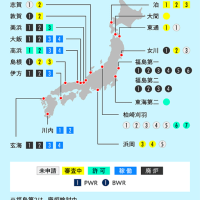2017-03-24 04:41:14
2017-01-18 22:58:19
Why does Japanese hear "voice" of a bug, and doesn't a foreigner hear?
The reader of this article is 2,129 accumulation.
Mitsuru Shimizu (60 Osaka office workers)
All physiological features of the Japanese who catches a natural sound by a linguistic brain and linguistic features of Japanese from which an onomatopoeia and an onomatopoetic word developed highly and also natural objects have complete set of one in a set of 3 points with the Japanese nature-views at which Jin lodges in us excellently.
It continues and is quotation in the following than mag2 news.Link
* The tone of the bug in the United States?
When saying the tone of the bug, a writer has such personal experience, too. There was a place with a view in an inland area in the mountains from which the human dwelling I entered for about 2 hours by car is away from Boston, so when I stop a car and take a rest, though it's the daytime, a bug is frequently singing.
While hearing that, when saying so suddenly, I also lived in California for 4 years, but that there is no remembrance which hung upon the tone of the bug, I noticed. There is also quite much green in a coastal area at California which dried. But abundant green is always a scene and a silent one for some reason by the view in my memory. It's the tone of the bug autumn is noisy balm cricket late autumn shower and by which it's a long night and, for, it can't be remembered no matter what.
When an American says a bug, a mosquito (mosquito), a fly (fly) and a be (bee) are the kind of harmful insects for remembering first. Almost no bee rather meets a mosquito and a fly in the United States. When I sometimes come across a fly, so the feeling that it's an unexpected insanitary place does. You assumed an enemy of a civilized life, and did you get rid of it thoroughly?
A nuance of the word bad for the word which indicates an insect again often accompanies. There is how to use as "person like a worm and the person who should look down on" in "insect", "bug", "It's disturbing, I make them suffer.", I turn, and it's used with "bug" etc. of software. Japanese is an image of a flea and a louse of "worm".
All bugs are a harmful insect, the, if the sound which cries is also heard like noise, even if I make a mosquito and a fly extinct together without a distinction by defeated bug spray, it's reasonable.
* The Bunka when I hang upon the tone of the bug
Contrastively, there is Bunka when I hang upon the tone of the bug in Japan. There even is also a book which explained a culture way infinitely from a picture of cricket kinds and the internet site in which a cry was put in today. The following children's song as "voice of a bug" is the example the Bunka when I hang upon the tone of the bug is enjoying from child's time.
Oh, a pine cricket is crying.A chinchilla A chinchilla Cricket.Oh, a bell cricket has also begun to cry.Ringingly Ringingly A lean Phosphorus.A long night in autumn, it cries through.Yes, voice of a fascinating bug
This tradition even dates back in antiquity.
A moonlight evening heart, if, in this garden NI morning dew puts, a cricket, it cries.(In Manyoshu and SHI NO: It feels like being wet and serious wetly.)
OmissionVarious bugs such as a pine cricket and a bell cricket are singing with various voice. I say to those voice that the thought that "growing and something to do and arrange" are various is learned about. Nature-views of the Japanese who has "voice" and "expectation" in a person and a bug equally as "growing and something to do and arrange" together are asked. I accord with the special quality of the Japanese who also hears the tone of the bug by a linguistic brain like person's voice excellently in this Bunka.
* A dog, "one one" and a cat, "mew"
I say that Japanese is asking by the linguistic brain to the brook of the tone of the cry of other animals, wave, wind and wet as well as the tone of the bug and a stream by Prof. Kakuta's discovery. This, also, Jin lodges at every natural object to the mountain, the river and the sea, and man agrees with nature-views from the Japan ancient times where they're only the member.
For a Japanese child for about 4 or 5 years which are an elementary school from a kindergarten, a dog, how many, but, that I say whether it cries, bark, I say, decided. A pine cricket is called a cricket. When I ask a foreigner, I'm quite in trouble. What Tei squid thinks, calls a memory, is Waugh Waugh and says WAWA strenuously, and?( "Right brain and left brain" p122 Remark of Taro Sonohara of a talk person and Kyoto University honorary professor (psychology))
It's natural for a Japanese child to answer "one one". Because a parent points at a dog, and I teach "one one". The stream "is smooth" "grunt" for a pig "low" for a cow "mew" for a cat equally, a wave, "ZABUN" and rain, "gentleness" and a wind, "rattlingly". A natural object seems to have "all voice" at all.
The point that such onomatopoeia and onomatopoetic word develop highly is the feature of Japanese. When an infant is learning these from the beginning, it may be natural to say that the bleat of the bug and the animal and a natural sound are treated with a linguistic brain as the part of the language. Or because it was treated with a linguistic brain conversely, did an onomatopoeia and an onomatopoetic word develop abundantly as the part of the language?
Anyway, all physiological features of the Japanese who catches a natural sound by a linguistic brain and linguistic features of Japanese from which an onomatopoeia and an onomatopoetic word developed highly and also natural objects have complete set of one in a set of 3 points with the Japanese nature-views at which Jin lodges in us excellently.
* The difference in the mother tongues, not the race
An interesting one receives a natural sound by a linguistic brain by Prof. Kakuta's discovery, and it's said that the Japanese-style feature as MERU is decided by a point whether not a problem of "the blood vessels", but Japanese as Japanese and a person of Japanese descent was remembered first as a mother tongue.
There is data which investigated 10 persons of Japanese descent at South America as the direct example. These persons of Japanese descent, except for 1 person, Portuguese and Spanish, all the brains were the Western type by the people who grew up as a mother tongue. With not knowing Portuguese at all, I was the lady who had time until a father did thorough Japanese-language education, and the exception which indicated Japanese style only turned 10 years old. After that I entered a Brazilian elementary school and even graduated from a university, only this lady was the perfect Japanese style which still catches a natural sound by a linguistic brain.
A Korean and a Korean are the Western type conversely originally, in Japan, Japanese, the people in Japan who grew up as a mother tongue are perfect Japanese style.
When I think, the Western type or a possibility that it's the difference in the mother tongues into which I grew, not racial difference whether it's Japanese-style is so high. It should be called "Japanese brain" more than "Japanese brain". The same pattern as Japanese is found by the world only in a Polynesian language by Prof. Kakuta's former investigation.
At the end of quotation
2017-01-18 22:58:19
| この記事の読者は累積2101人です。 |
| |||
| 323543 | なぜ日本人には虫の「声」が聞こえ、外国人には聞こえないのか?② | ||
| |||
| |||




















※コメント投稿者のブログIDはブログ作成者のみに通知されます